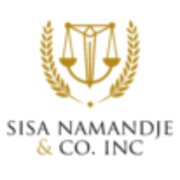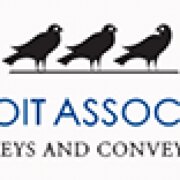Best Sanctions & Export Controls Lawyers in Namibia
Share your needs with us, get contacted by law firms.
Free. Takes 2 min.
Or refine your search by selecting a city:
List of the best lawyers in Namibia
About Sanctions & Export Controls Law in Namibia
Sanctions and export controls in Namibia refer to laws and regulations designed to monitor, control, and sometimes prohibit the trade of certain goods, technologies, and services. These measures are implemented for reasons such as national security, public policy, international obligations, or to comply with United Nations Security Council Resolutions. Namibia, as a member of the United Nations and the Southern African Development Community (SADC), often aligns its sanctions and export controls with international standards. The government enforces these controls to prevent the proliferation of weapons, embargo restricted entities or nations, and ensure that strategic goods do not fall into the wrong hands.
Why You May Need a Lawyer
The field of sanctions and export controls is complex and constantly evolving, especially given Namibia’s ties to international agreements. You may require legal help in several circumstances, such as:
- Facing an investigation relating to alleged violations of export control regulations or international sanctions
- Applying for export licenses for goods that may be controlled or restricted
- Transacting with foreign entities or countries subject to Namibian or international sanctions
- Dealing with asset freezes or restrictions imposed under international resolutions
- Being accused of illegally importing, exporting, or transshipping controlled goods
- Needing guidance on compliance programs to avoid inadvertent breaches
- Addressing customs seizures or regulatory enforcement for non-compliance with controls
- Advising multinational or local companies on trade compliance risks
A qualified lawyer can help you interpret the law, ensure compliance, handle negotiations with authorities, and represent you if legal proceedings arise.
Local Laws Overview
Namibia’s sanctions and export controls framework is influenced both by its national legal instruments and by its commitments under international law. Key aspects of the local regime include:
- The Customs and Excise Act of 1998, which governs the import and export of goods, including licensing, permits, and prohibitions
- The Prevention and Combating of Terrorist and Proliferation Activities Act, which provides for measures against individuals or organizations associated with terrorism or proliferation of weapons of mass destruction, including sanctions and asset freezes
- Namibian Government Gazetted Notices that implement United Nations Security Council Resolutions on sanctions and export controls
- Specific licensing requirements for dual-use goods, military items, and sensitive technologies
- Obligations for financial institutions under anti-money laundering laws to screen for sanctioned individuals or entities
- Provisions enabling authorities to seize or detain goods in breach of controls, and penalties for violation, including fines and imprisonment
Businesses must ensure compliance not only with Namibian law but also be aware of potential extraterritorial effects of sanctions imposed by other jurisdictions if they are involved in cross-border trade.
Frequently Asked Questions
What are export controls in Namibia?
Export controls are laws regulating the transfer of certain goods, technology, or services across Namibia’s borders, particularly those that could be used for military or strategic purposes.
Who enforces sanctions and export controls in Namibia?
Enforcement is primarily carried out by the Ministry of Finance (Customs and Excise), the Namibian Police, and other relevant authorities depending on the type of sanction or control. The Bank of Namibia also plays a role for financial sanctions.
Which goods are commonly subject to export controls?
Typical examples include firearms, ammunition, chemicals, dual-use goods (those with both civilian and military applications), technology related to nuclear energy, and sensitive electronic equipment.
Does Namibia follow international sanctions?
Yes, Namibia implements United Nations Security Council sanctions and may also cooperate with regional bodies such as SADC regarding embargoes and trade restrictions.
What happens if I violate export control laws in Namibia?
Violation can lead to seizures, penalties, revocation of licenses, and criminal prosecution. Penalties may include heavy fines and imprisonment.
Do I need a license to export controlled goods?
Yes, you must apply for and obtain an export license from the relevant authority before you can lawfully export controlled items.
Are financial transactions subject to sanctions controls?
Yes, financial institutions are required to screen for and block transactions involving sanctioned individuals, groups, or countries as per Namibian and international law.
Can a lawyer help me get an export license?
Absolutely. A lawyer can guide you through the application process, advise on eligibility, and help you prepare the necessary documentation to ensure compliance.
What should I do if my goods are seized by Customs?
Contact a lawyer immediately. You will need legal assistance in responding to the seizure, challenging it if necessary, and ensuring compliance moving forward.
Are there any national lists of sanctioned entities?
Yes, Namibia publishes notices in the Government Gazette identifying sanctioned entities or individuals pursuant to relevant legislation or UN resolutions.
Additional Resources
If you are seeking further information or need official guidance, consider the following resources:
- Ministry of Finance - Customs and Excise Division
- Ministry of Home Affairs, Immigration, Safety and Security
- Office of the Attorney General
- Bank of Namibia (for financial and banking sanctions)
- Namibia Revenue Agency
- Namibia Chamber of Commerce and Industry (for business compliance support)
- United Nations Security Council Sanctions Committees (for global sanctions reference)
Next Steps
If you need legal assistance regarding sanctions and export controls in Namibia, the following steps are recommended:
- Identify your specific issue, whether it is a compliance concern, application for a license, or responding to an investigation
- Gather all relevant documents such as export records, notices received, licenses, and correspondence with authorities
- Consult with a qualified Namibian lawyer who specializes in trade law, customs, and regulatory compliance
- Discuss with the lawyer your goals and desired outcomes, and be open about any previous interactions or potential violations
- Work collaboratively to build a compliance strategy or legal defense, if necessary
- Regularly monitor updates to laws and maintain compliance systems to prevent future issues
Early legal advice can prevent small issues from escalating and ensure that your business or personal affairs remain aligned with Namibian and international sanctions and export control requirements.
Lawzana helps you find the best lawyers and law firms in Namibia through a curated and pre-screened list of qualified legal professionals. Our platform offers rankings and detailed profiles of attorneys and law firms, allowing you to compare based on practice areas, including Sanctions & Export Controls, experience, and client feedback.
Each profile includes a description of the firm's areas of practice, client reviews, team members and partners, year of establishment, spoken languages, office locations, contact information, social media presence, and any published articles or resources. Most firms on our platform speak English and are experienced in both local and international legal matters.
Get a quote from top-rated law firms in Namibia — quickly, securely, and without unnecessary hassle.
Disclaimer:
The information provided on this page is for general informational purposes only and does not constitute legal advice. While we strive to ensure the accuracy and relevance of the content, legal information may change over time, and interpretations of the law can vary. You should always consult with a qualified legal professional for advice specific to your situation.
We disclaim all liability for actions taken or not taken based on the content of this page. If you believe any information is incorrect or outdated, please contact us, and we will review and update it where appropriate.
Browse sanctions & export controls law firms by city in Namibia
Refine your search by selecting a city.















